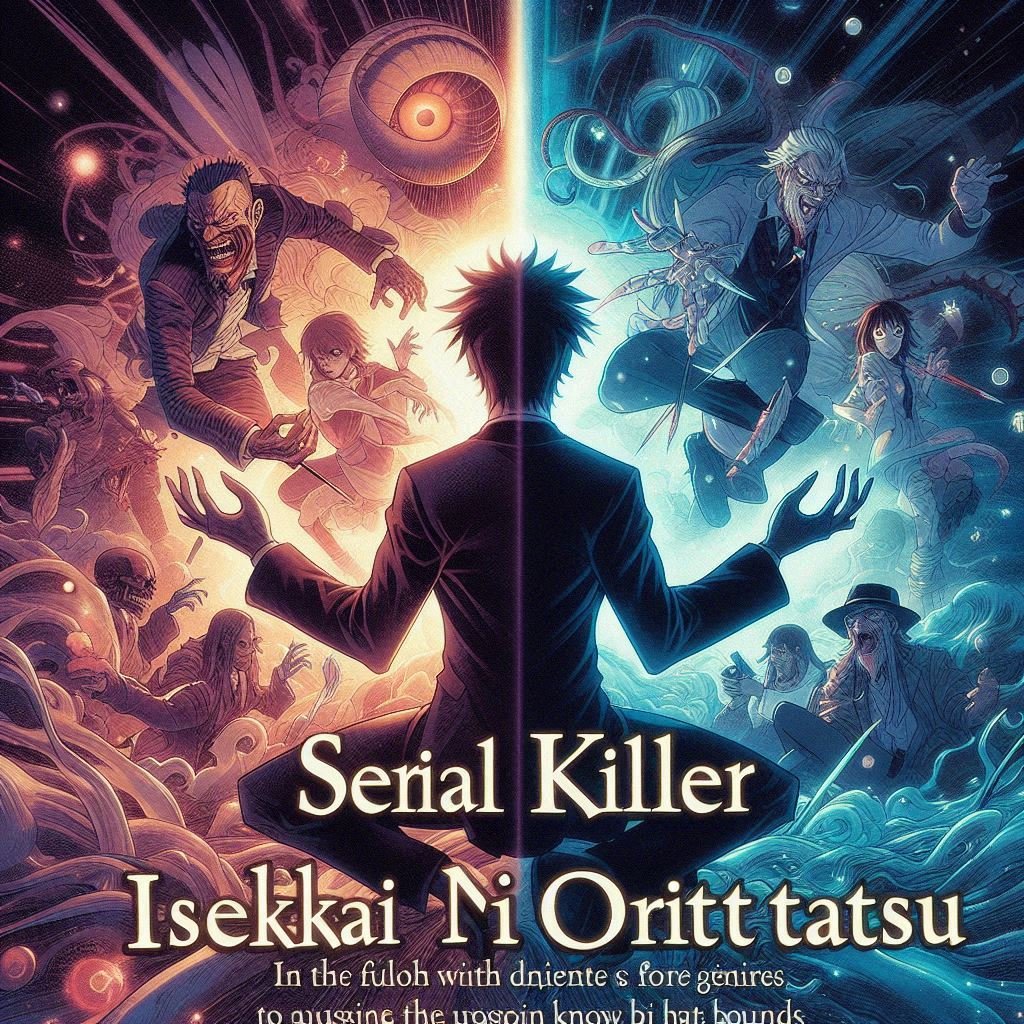Serial Killer Isekai Ni Oritatsu, In the realm of fiction, where imagination knows no bounds, the fusion of two seemingly disparate genres—serial killers and isekai—has given birth to a captivating subgenre known as Serial Killer Isekai Ni Oritatsu. To comprehend this intriguing fusion, it’s essential to dissect its components.
Definition of Isekai
Isekai, a Japanese term meaning “another world,” refers to a subgenre of speculative fiction where characters, often protagonists, are transported from their mundane existence to a parallel universe or alternate reality. This narrative device serves as a gateway to explore fantastical realms, supernatural phenomena, and extraordinary adventures.
Introduction to Serial Killers in Fiction
On the other hand, Serial Killer Isekai Ni Oritatsu have long been a morbid fascination in literature, film, and television. These characters, driven by complex motives and twisted desires, have captured the imaginations of audiences worldwide. From the chilling charisma of Hannibal Lecter to the enigmatic allure of Dexter Morgan, fictional serial killers often embody the darkest recesses of the human psyche.
Overview of the Concept
Combining the escapist allure of isekai with the macabre intrigue of serial killers, Serial Killer Isekai Ni Oritatsu transports readers into a world where the boundaries between fantasy and horror blur. In this subgenre, protagonists—often portrayed as serial killers themselves—are thrust into fantastical realms where they must navigate treacherous landscapes, confront supernatural adversaries, and grapple with their inner demons.
The Amusing Details of Serial Killer Isekai ni Oritatsu Chapter 7
The Appeal of Serial Killer Isekai Ni Oritatsu Stories
Escapism and Fantasy
One of the primary appeals of Serial Killer Isekai Ni Oritatsu lies in its ability to offer readers an escape from the mundane realities of everyday life. By transporting protagonists into otherworldly settings, these stories invite audiences to immerse themselves in worlds filled with magic, mystery, and danger.
Morbid Fascination
Moreover, the juxtaposition of serial killers and fantastical elements taps into humanity’s morbid fascination with the darker aspects of existence. Through the lens of isekai, readers are granted voyeuristic glimpses into the minds of complex and often morally ambiguous characters, further fueling their curiosity and intrigue.
Exploration of the Human Psyche
Furthermore, Serial Killer Isekai Ni Oritatsu provides a platform for exploring the intricacies of the human psyche. By placing protagonists in extraordinary circumstances, these narratives delve into themes of identity, morality, and existentialism, prompting readers to ponder the nature of good and evil.
Common Themes in Serial Killer Isekai Narratives
Moral Ambiguity
Central to many Serial Killer Isekai Ni Oritatsu stories is the exploration of moral ambiguity. Protagonists, often burdened by their past actions, find themselves confronted with ethical dilemmas in their new otherworldly surroundings, forcing them to confront the consequences of their choices.
Redemption Arcs
Moreover, redemption arcs are a recurring motif in Serial Killer Isekai Ni Oritatsu narratives. As protagonists navigate their newfound environments, they are presented with opportunities for growth, self-discovery, and ultimately, redemption. These arcs underscore the inherent complexity of human nature and the possibility of transformation.
Psychological Depth
Lastly, Serial Killer Isekai Ni Oritatsu stories are characterized by their psychological depth. Through introspective narration and nuanced character development, authors delve into the inner workings of protagonists’ minds, offering readers insight into their motivations, fears, and desires.
Notable Examples of Serial Killer Isekai Ni Oritatsu Works
Novels
- “Murderous Wonderland: Chronicles of the Otherworldly Killer” by S. J. Blackwood
- “Beyond the Veil of Shadows: The Reaper’s Odyssey” by A. R. Nightingale
Manga and Anime
- “Psycho Portal: Into the Abyss” (Manga series)
- “Reaper’s Reckoning: Bloodstained Chronicles” (Anime adaptation)
Movies and TV Shows
- “Carnage Crossing: Gateway to Hell” (Film)
- “Blood Moon Chronicles: Nightfall Saga” (TV series)
Impact and Reception
Controversy and Criticism
Despite its niche appeal, Serial Killer Isekai Ni Oritatsu has not been without controversy. Critics argue that the subgenre glorifies violence and perpetuates harmful stereotypes about mental illness and criminal behavior. However, proponents counter that these narratives offer a unique lens through which to explore complex themes and provoke thought-provoking discussions.
Fan Base and Popularity
Nevertheless, Serial Killer Isekai Ni Oritatsu has garnered a dedicated fan base, drawn to its blend of suspense, supernatural elements, and psychological intrigue. From online forums to fan conventions, enthusiasts eagerly dissect the intricacies of their favorite stories, fueling speculation, fan theories, and fan fiction.
Conclusion
Serial Killer Isekai Ni Oritatsu stands as a testament to the boundless creativity of fiction writers and the insatiable curiosity of audiences. By merging the realms of fantasy and horror, these narratives offer readers a glimpse into worlds where the line between hero and villain is blurred, and the human psyche is laid bare.
The Evolution of the little_mermaidd0 : A Lasting Impact in a Brief
FAQs
- Are serial killer isekai stories suitable for all audiences?
- While some may find the subject matter disturbing, many stories within this subgenre contain mature themes and content, making them more suitable for adult audiences.
- What sets serial killer isekai narratives apart from traditional isekai stories?
- Serial killer isekai narratives often delve into darker themes and psychological depth, exploring the complexities of human nature in ways that traditional isekai stories may not.
- Are there any real-life inspirations for serial killer isekai works?
- While these narratives are primarily products of fiction, they may draw inspiration from real-life serial killers and their infamous deeds.
- Do serial killer isekai stories always feature protagonists with morally ambiguous backgrounds?
- While it’s a common trope within the subgenre, not all protagonists in serial killer isekai stories have morally ambiguous backgrounds. However, many do grapple with inner demons and ethical dilemmas.
- Can serial killer isekai narratives offer insightful commentary on societal issues?
- Yes, many serial killer isekai narratives use their fantastical settings as allegories for real-world issues, offering insightful commentary on topics such as morality, justice, and the human condition.


COMMENTS